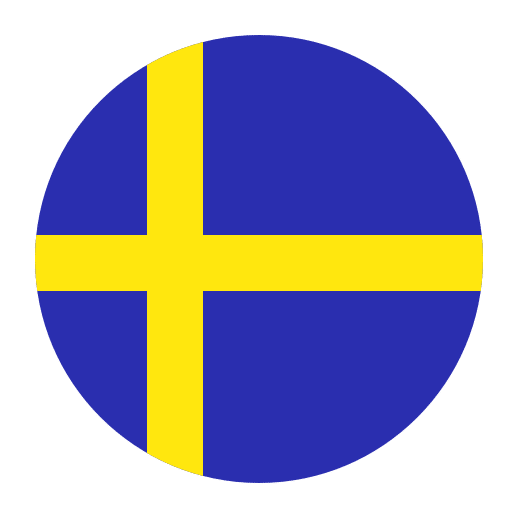Learning a new language can be an exciting and rewarding experience, opening doors to new cultures, people, and opportunities. Swedish, spoken by around 10 million people, is a particularly intriguing language due to its rich history and melodic quality. For English speakers, Swedish is relatively easy to pick up, thanks to its Germanic roots that it shares with English. To help you get started on your Swedish language journey, we’ve compiled a list of practical Swedish phrases for everyday use. These phrases will help you navigate daily interactions, whether you’re traveling in Sweden, meeting Swedish speakers, or just looking to practice your new language skills.
Basic Greetings and Polite Expressions
One of the first things you’ll need to know when learning any new language is how to greet people and use polite expressions. Here are some essential Swedish phrases to get you started:
Hej! (Hello!)
The most common greeting in Swedish is “Hej!” It’s simple, informal, and can be used in almost any situation.
God morgon. (Good morning.)
Start your day off right with “God morgon.” This phrase is used to greet someone in the morning.
God kväll. (Good evening.)
When the day is winding down, “God kväll” is the appropriate greeting.
Hur mår du? (How are you?)
This is a common way to ask someone how they are feeling. It’s polite and shows that you care.
Tack. (Thank you.)
Gratitude is always appreciated, and “Tack” is the go-to word for thanking someone.
Varsågod. (You’re welcome.)
When someone thanks you, respond with “Varsågod.”
Ursäkta. (Excuse me.)
Use “Ursäkta” to get someone’s attention politely.
Förlåt. (Sorry.)
If you need to apologize, “Förlåt” is the word to use.
Introducing Yourself and Others
Introducing yourself and getting to know others is a key part of any conversation. Here are some useful phrases for introductions:
Jag heter [Your Name]. (My name is [Your Name].)
This is the standard way to introduce yourself in Swedish.
Vad heter du? (What is your name?)
Ask for someone’s name with this phrase.
Trevligt att träffas. (Nice to meet you.)
When meeting someone for the first time, this phrase is a friendly way to acknowledge them.
Det här är [Name]. (This is [Name].)
Introduce someone else with this phrase.
Var kommer du ifrån? (Where are you from?)
Ask someone about their origin with this question.
Jag kommer från [Country/City]. (I am from [Country/City].)
Respond to the above question with this phrase to share where you’re from.
Ordering Food and Drinks
Whether you’re at a café, restaurant, or bar, knowing how to order food and drinks is essential. Here are some phrases to help you navigate these situations:
Kan jag få menyn, tack? (Can I have the menu, please?)
Ask for the menu with this phrase.
Jag skulle vilja beställa. (I would like to order.)
Use this phrase when you’re ready to place your order.
Vad rekommenderar du? (What do you recommend?)
If you’re unsure what to order, ask for a recommendation.
Jag tar en/ett [food/drink], tack. (I’ll have a [food/drink], please.)
Specify what you want to order with this phrase.
Kan jag få notan, tack? (Can I have the bill, please?)
When you’re ready to pay, use this phrase.
Kan jag få en kopp kaffe, tack? (Can I have a cup of coffee, please?)
For coffee lovers, this phrase will come in handy.
Shopping and Handling Money
When shopping in Sweden, these phrases will help you communicate with shopkeepers and handle transactions smoothly:
Hur mycket kostar det? (How much does it cost?)
Ask for the price of an item with this question.
Kan jag betala med kort? (Can I pay by card?)
Inquire if you can use a card for payment with this phrase.
Jag tittar bara. (I’m just looking.)
If you’re browsing and not ready to buy, use this phrase.
Har ni det i en annan storlek? (Do you have it in another size?)
If you need a different size, this question will help.
Kan jag få kvittot, tack? (Can I have the receipt, please?)
Ask for your receipt with this phrase.
Det är för dyrt. (It’s too expensive.)
If something is out of your budget, use this phrase.
Asking for Directions
Getting around in a new place can be challenging, but these phrases will help you ask for and understand directions:
Var är [place]? (Where is [place]?)
Ask for the location of a specific place with this question.
Hur kommer jag till [place]? (How do I get to [place]?)
Use this phrase to ask for directions to a particular destination.
Är det långt härifrån? (Is it far from here?)
Inquire about the distance with this question.
Kan du visa mig på kartan? (Can you show me on the map?)
If you have a map, ask for visual directions with this phrase.
Vänster (left) / Höger (right) / Rakt fram (straight ahead)
These directional words will help you understand the instructions given to you.
Tack för hjälpen. (Thank you for your help.)
Always show gratitude when someone assists you with directions.
Emergency Phrases
While we hope you never have to use them, it’s important to know some emergency phrases just in case:
Hjälp! (Help!)
This is the simplest and most urgent way to call for help.
Ring polisen! (Call the police!)
If you need law enforcement, use this phrase.
Jag behöver en läkare. (I need a doctor.)
In case of a medical emergency, this phrase will be crucial.
Var är närmaste sjukhus? (Where is the nearest hospital?)
Ask for the location of the nearest hospital with this question.
Jag har tappat bort mig. (I am lost.)
If you find yourself lost, use this phrase to seek assistance.
Min telefon är borta. (My phone is gone.)
If your phone is lost or stolen, this phrase will help you explain the situation.
Common Expressions and Slang
To sound more like a native speaker, it’s helpful to know some common expressions and slang. Here are a few to get you started:
Vad kul! (How fun!)
Express enjoyment or excitement with this phrase.
Ingen fara. (No problem.)
Use this expression to reassure someone that everything is fine.
Det är lugnt. (It’s cool/No worries.)
This slang phrase is often used to mean that everything is okay.
Skål! (Cheers!)
When toasting drinks with friends, say “Skål!”
Ha en bra dag! (Have a nice day!)
Wish someone well with this friendly phrase.
Jag förstår inte. (I don’t understand.)
If you’re confused or didn’t catch what someone said, use this phrase.
Practicing Your Swedish
Now that you’ve got a list of practical Swedish phrases, it’s time to practice. Here are some tips to help you improve your Swedish language skills:
Engage in Conversations
The best way to learn a language is through practice. Try to have conversations with native Swedish speakers or fellow learners. Use the phrases you’ve learned to build your confidence.
Listen to Swedish Media
Watching Swedish movies, TV shows, and listening to Swedish music or podcasts can help you get used to the sound and rhythm of the language. It’s also a great way to pick up new vocabulary and phrases.
Use Language Learning Apps
There are many language learning apps available that can help you practice Swedish. Apps like Duolingo, Babbel, and Memrise offer interactive lessons and exercises.
Join a Language Exchange Program
Language exchange programs pair you with native speakers who want to learn your language. This way, you can practice Swedish while helping someone else learn English.
Read Swedish Books and Articles
Start with children’s books or simple articles and gradually move on to more complex texts. Reading helps you understand sentence structure and expand your vocabulary.
Write in Swedish
Try keeping a diary or writing short stories in Swedish. Writing helps reinforce what you’ve learned and improves your ability to construct sentences.
Stay Consistent
Consistency is key in language learning. Practice a little every day, and don’t be afraid to make mistakes. The more you use the language, the better you’ll become.
By incorporating these practical phrases into your daily interactions, you’ll find yourself becoming more comfortable and confident in Swedish. Remember, language learning is a journey, and every step you take brings you closer to fluency. So, hej då (goodbye) for now, and lycka till (good luck) with your Swedish language adventure!

